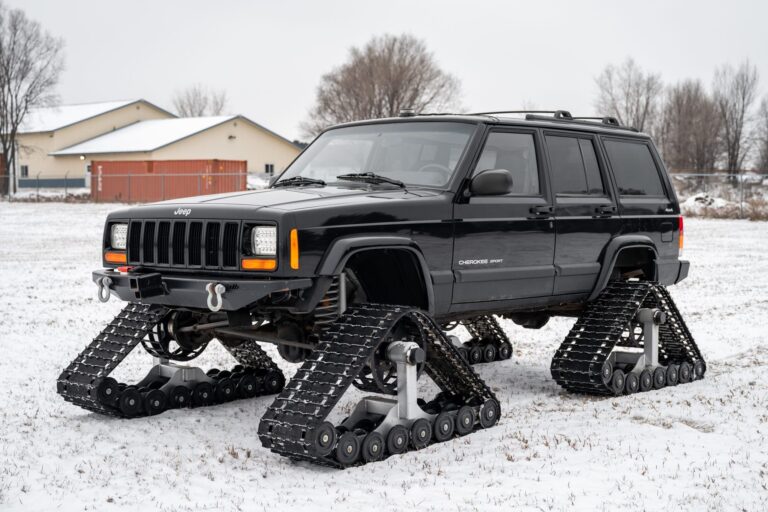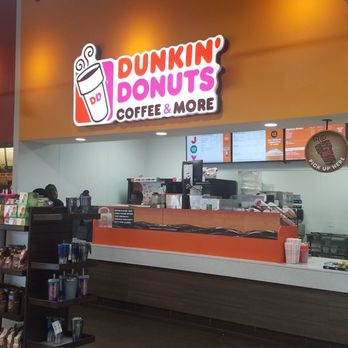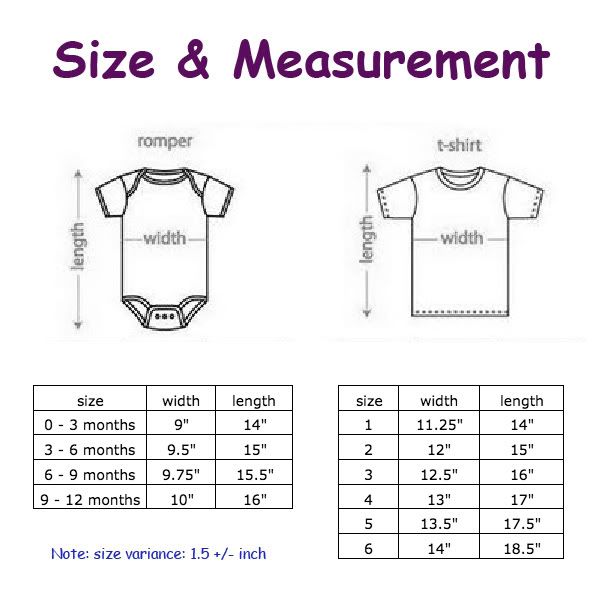U-Haul Trailer Rental Prices: Your Comprehensive Guide
U-Haul Trailer Rental Prices: Your Comprehensive Guide cars.truckstrend.com
Moving, hauling, or transporting goods often brings with it the need for reliable and affordable solutions. For countless individuals and businesses across North America, U-Haul stands as a household name, synonymous with DIY moving and flexible rental options. Among their extensive fleet, U-Haul trailers offer a versatile and cost-effective alternative to renting a full moving truck, especially when you already own a vehicle capable of towing. Understanding U-Haul trailer rental prices, however, can sometimes feel like navigating a maze, with various factors influencing the final cost.
This comprehensive guide aims to demystify U-Haul trailer rental prices, providing you with a clear understanding of the different trailer types, the factors that influence their cost, practical tips for securing the best deal, and essential considerations for a smooth rental experience. Whether you’re moving across town, hauling a new piece of furniture, or transporting a vehicle, knowing the ins and outs of U-Haul’s pricing model is your first step towards an efficient and budget-friendly endeavor.
U-Haul Trailer Rental Prices: Your Comprehensive Guide
Understanding U-Haul’s Pricing Model
U-Haul’s pricing structure for trailers is designed to be flexible, accommodating both short-term local needs and longer-distance, one-way journeys. The primary differentiators in pricing stem from the duration and direction of your rental.
Local vs. One-Way Rentals
- Local Rentals: These are typically priced on a daily basis and involve picking up and returning the trailer to the same U-Haul location. They are ideal for moving within a city, hauling debris, or transporting items over short distances. Local rental rates are generally lower per day and are more transparent.
- One-Way Rentals: Designed for moves across different cities or states, one-way rentals allow you to pick up a trailer at one U-Haul location and drop it off at another. The pricing for one-way rentals is often a flat fee determined by the distance, the specific route, the availability of trailers at both locations, and the time of year. These rates are dynamic and can fluctuate significantly based on demand.
Daily vs. Multi-Day Rates

For local rentals, pricing is usually quoted per day. While there isn’t a significant discount for renting for multiple consecutive days, the overall convenience of having the trailer for longer might justify the cumulative cost for larger projects. One-way rentals are quoted for a specific number of days, usually sufficient to complete your journey, with penalties for late returns.
Peak vs. Off-Peak Season
Like many rental services, U-Haul experiences peak demand during certain times of the year. The busiest periods for moving are typically late spring through early fall, especially weekends and the end of the month. During these peak times, prices, particularly for one-way rentals, tend to be higher due to increased demand and potentially limited availability. Conversely, renting during off-peak seasons (winter months, weekdays) can often result in lower rates.
Availability and Demand
The supply and demand at specific U-Haul locations also play a crucial role. If a particular trailer size is in high demand at your desired pickup location, or if there’s a shortage, prices may be higher. Booking in advance can sometimes help mitigate this, especially for popular trailer types.
![]()
Types of U-Haul Trailers and Their Pricing Implications
U-Haul offers a variety of trailers, each designed for specific hauling needs. The type and size of the trailer you choose will significantly impact your rental cost.
Utility Trailers (Open Top)
These open-top trailers are versatile for hauling various items, from yard waste and construction materials to furniture and appliances. They come with low loading decks and sturdy frames.
- Sizes: 4’x7′, 5’x8′, 5’x10′, 6’x12′
- Common Uses: DIY projects, moving small loads, yard work, furniture transport.
- Pricing: Generally the most affordable type of trailer, with daily local rates increasing with size. The 6’x12′ is the largest and most expensive utility trailer.

Cargo Trailers (Enclosed)
Enclosed trailers provide protection from the elements and added security for your belongings. They are ideal for moving furniture, electronics, or items that need to be shielded from weather or theft.
- Sizes: 4’x6′, 5’x8′, 5’x10′, 6’x12′
- Common Uses: Moving household goods, protecting valuables from weather, secure transport.
- Pricing: Slightly more expensive than utility trailers of comparable size due to the added enclosure and security features.
Car Haulers (Auto Transports)
Designed specifically for towing vehicles, car haulers are heavy-duty, tandem-axle trailers with ramps and tie-downs. They lift the entire vehicle off the ground.
- Size: Approximately 6’8" x 14’5" (suitable for most cars, trucks, and SUVs)
- Common Uses: Transporting non-running vehicles, protecting mileage on a car during a move, relocating specialty vehicles.
- Pricing: Among the most expensive trailer options due to their specialized design and higher load capacity.
Tow Dollies
A more economical option for transporting a vehicle, a tow dolly lifts only the front wheels of the towed vehicle off the ground, leaving the rear wheels to roll on the pavement.
- Size: Various (designed for most front-wheel drive vehicles, some rear-wheel drive)
- Common Uses: Economical car transport for shorter distances, suitable for front-wheel drive vehicles.
- Pricing: Significantly cheaper than car haulers, offering a budget-friendly way to move a car.
Factors That Influence Your Final Rental Cost
Beyond the basic trailer type and rental duration, several other factors can influence the total amount you pay for your U-Haul trailer rental.
- Duration of Rental: As mentioned, longer rental periods for local moves will accrue more daily charges. For one-way rentals, exceeding the allotted days will result in late fees.
- Distance (for one-way rentals): The mileage or distance between your pickup and drop-off locations is a primary determinant for one-way trailer prices. Longer distances generally mean higher costs.
- Location: Prices can vary based on the specific U-Haul center and the demand in that geographical area. Urban centers might have different pricing structures compared to rural locations.
- Insurance/Protection Plans: U-Haul offers optional protection plans like Safemove® and Safetow® for peace of mind. These plans cover damage to the trailer, your belongings, or even third-party liability. While optional, they add to the total cost and are highly recommended.
- Additional Equipment: You might need moving blankets, hand trucks, furniture dollies, or tie-down straps. While not part of the trailer rental itself, these are often rented alongside and contribute to your overall moving budget.
- Environmental Fee/Taxes: Like many rental services, U-Haul may add an environmental fee and applicable sales taxes to your total bill, which are often overlooked until checkout.
- Hitch and Wiring: If your towing vehicle isn’t equipped with a proper hitch and electrical wiring, U-Haul locations can install them, but this will be an additional, separate cost.
How to Get the Best Deal on Your U-Haul Trailer Rental
Securing the best price for your U-Haul trailer requires a bit of strategic planning.
- Book in Advance: Especially for one-way rentals or during peak seasons, reserving your trailer well in advance can help lock in a better rate and ensure availability.
- Be Flexible with Dates: If your schedule allows, try to rent during weekdays or off-peak seasons (e.g., mid-month, winter months) when demand is lower.
- Consider Local vs. One-Way Carefully: For shorter distances, sometimes two separate local rentals (one to the destination, one from) can be cheaper than a single one-way rental if you have the means to return the trailer. However, this is rarely practical. Always get quotes for both if applicable.
- Check for Promotions/Discounts: U-Haul occasionally offers promotions or discounts, especially during slower periods. Check their website or inquire at your local dealer.
- Return on Time: Avoid late fees by returning your trailer promptly on the agreed-upon date and time.
- Utilize the U-Haul Website for Quotes: The U-Haul website is an excellent tool for getting accurate, real-time quotes for both local and one-way rentals. Input your specific dates and locations to see precise pricing.
The Rental Process: What to Expect
The U-Haul trailer rental process is generally straightforward:
- Online Reservation: Visit U-Haul’s website, select your desired trailer type, pickup/drop-off locations, and dates. You’ll receive an instant quote.
- Pickup Process: At the U-Haul location, present your valid driver’s license. The staff will verify your towing vehicle’s capacity, inspect your hitch and wiring, and ensure everything is properly connected and functioning (lights, safety chains). You’ll sign the rental agreement.
- Drop-off Process: Return the trailer to the agreed-upon location (same location for local, specified one-way location for others) by the due date. The staff will inspect the trailer for damage and confirm its return.
Important Considerations Before Renting
Before you even look at prices, ensure you’re prepared to tow safely and legally.
- Towing Vehicle Capacity: Your vehicle must be capable of safely towing the chosen trailer plus its loaded contents. Check your vehicle’s owner’s manual for its Gross Vehicle Weight Rating (GVWR) and Gross Combined Weight Rating (GCWR). U-Haul’s website also has a helpful "Tow Vehicle Rating" tool.
- Hitch Class and Ball Size: You need a properly installed hitch receiver. Utility and cargo trailers typically require a 1-7/8" or 2" hitch ball, while car haulers require a 2" or 2-5/16" ball. Ensure your hitch class matches the trailer’s requirements.
- Electrical Connections: Your vehicle needs a working 4-pin or 7-pin electrical connector to power the trailer’s brake lights, turn signals, and running lights.
- Driver’s License: A standard driver’s license is typically sufficient for U-Haul trailer rentals in most states and provinces.
- Pre-Trip Inspection: Always perform a thorough inspection of the trailer’s tires, lights, hitch connection, and safety chains before departing.
- Loading: Load the trailer correctly, distributing weight evenly with more weight over the trailer’s axle(s) and slightly more towards the front (tongue weight) for stability. Never overload the trailer.
U-Haul Trailer Rental Estimated Local Daily Prices
Below is an estimated price table for U-Haul trailer rentals based on typical local daily rates. Please note that these are estimates and actual prices can vary significantly based on location, demand, time of year, and specific promotions. One-way rental prices are dynamic and are quoted individually based on distance and route.
| Trailer Type | Size (WxL) | Common Uses | Typical Daily Local Rate (Est.) |
|---|---|---|---|
| Utility Trailers | |||
| Open Top | 4′ x 7′ | Small loads, furniture, yard waste | $14.95 – $19.95 |
| Open Top | 5′ x 8′ | Small to medium loads, appliances | $18.95 – $24.95 |
| Open Top | 5′ x 10′ | Medium loads, longer items, construction | $24.95 – $29.95 |
| Open Top | 6′ x 12′ | Large loads, bulky items, appliances | $29.95 – $34.95 |
| Cargo Trailers (Enclosed) | |||
| Enclosed | 4′ x 6′ | Small items, secure transport, electronics | $18.95 – $24.95 |
| Enclosed | 5′ x 8′ | Medium items, secure transport, furniture | $24.95 – $29.95 |
| Enclosed | 5′ x 10′ | Larger items, secure transport, bulk goods | $29.95 – $34.95 |
| Enclosed | 6′ x 12′ | Furniture, bulk items, weather protection | $34.95 – $39.95 |
| Auto Transports | |||
| Car Hauler | Approx. 6’8" x 14’5" (deck size) | Full-size vehicles, non-running cars | $45.00 – $65.00 (Local) |
| Tow Dollies | Various (vehicle specific) | Front-wheel drive vehicles, short distances | $35.00 – $55.00 (Local) |
Note on pricing: These are estimated daily local rates and can vary by location, demand, and promotions. One-way rental prices are quoted individually and depend heavily on distance, route, and availability. Optional insurance/protection plans typically add $8-$15+ per day for local rentals, or a flat fee for one-way rentals.*
Frequently Asked Questions (FAQ)
Q1: Can I rent a U-Haul trailer one-way?
A1: Yes, most cargo trailers, auto transports, and tow dollies are available for one-way rentals. Utility trailers are generally for local use only, though exceptions may apply based on availability and route.
Q2: Do I need insurance for a U-Haul trailer rental?
A2: Insurance (U-Haul’s Safetow® or equivalent) is optional but highly recommended. It provides coverage for damage to the trailer, your vehicle, or third-party property while towing. Check your personal auto insurance policy as it may offer some coverage, but often with limitations for rental trailers.
Q3: What kind of hitch do I need to rent a U-Haul trailer?
A3: You need a properly installed hitch receiver on your towing vehicle. The hitch ball size required depends on the trailer type: 1-7/8" or 2" for utility/cargo trailers, and 2" or 2-5/16" for car haulers. Your vehicle also needs compatible electrical wiring (4-pin or 7-pin) for the trailer lights.
Q4: Can I pick up a U-Haul trailer without a reservation?
A4: While possible, it’s not recommended, especially during peak seasons or for popular trailer types. Reserving in advance ensures availability and can sometimes lock in a better rate.
Q5: Are there mileage charges for U-Haul trailer rentals?
A5: For local rentals, there are typically no mileage charges; you pay a daily rate. For one-way rentals, the mileage is factored into the flat rate quoted for your specific route, so there are no additional per-mile charges.
Q6: What happens if I return the trailer late?
A6: U-Haul charges late fees if the trailer is not returned by the agreed-upon time. It’s crucial to adhere to your rental agreement to avoid extra costs.
Q7: What’s the difference between a tow dolly and an auto transport (car hauler)?
A7: A tow dolly lifts only the front wheels of the towed vehicle off the ground, with the rear wheels rolling. It’s generally cheaper and lighter. An auto transport (car hauler) is a full trailer that lifts the entire vehicle off the ground, providing more protection and suitable for all vehicle types (including 4x4s, all-wheel drives, or non-running vehicles).
Conclusion
U-Haul trailer rental prices are influenced by a combination of trailer type, size, rental duration, location, and the crucial distinction between local and one-way journeys. By understanding these variables and utilizing U-Haul’s online quoting tools, you can accurately budget for your hauling needs. Always prioritize safety by ensuring your towing vehicle is properly equipped and by understanding the correct loading procedures. With careful planning and attention to detail, U-Haul trailers offer a flexible, efficient, and often economical solution for a wide array of transport challenges, empowering you to take control of your move or hauling project with confidence.






